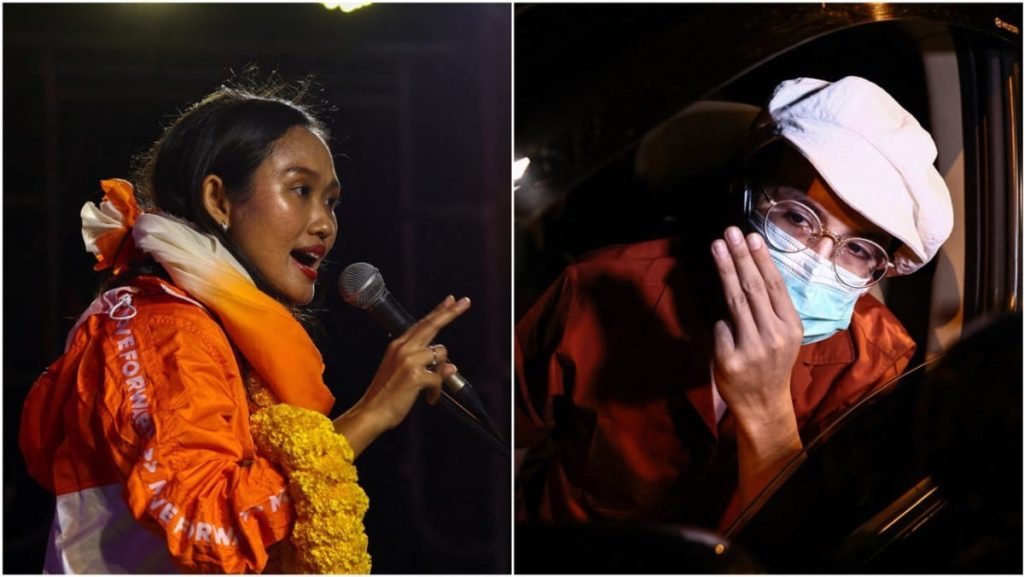Courts in Thailand have handed down jail terms to an activist musician and an opposition lawmaker for insulting the monarchy, which is protected by the country’s strict lese-majeste law. The musician, Chaiamorn Kaewwiboonpan, was sentenced to four years in prison for burning a portrait of King Maha Vajiralongkorn, while the lawmaker, Chonthicha Jangrew, received a two-year term for a speech made at an anti-government protest. Both individuals denied the charges and were granted bail pending appeals.
Another monarchy-reform activist, Tantawan Tuatulanon, was granted bail after being accused of harassing a royal motorcade and charged with sedition. She was sent to a hospital outside prison earlier due to her weak physical condition. The courts have yet to issue statements on the sentences, and the palace typically does not comment on legal matters. The lese-majeste law in Thailand carries a penalty of up to 15 years in jail for each offence, and more than 272 people have been charged under this law since 2020.
The musician, Chaiamorn, who was found guilty of arson, lese-majeste, and computer crimes, set the portrait of the king on fire to vent frustration over the detention of fellow activists on royal insult charges. The legal aid group Thai Lawyers for Human Rights said he intends to appeal the sentence. The opposition lawmaker Chonthicha, a parliamentarian with the Move Forward Party, had denied the charge of insulting the monarchy and was given bail pending an appeal. The courts have not issued statements on the sentences yet.
In a separate ruling, a court granted bail to Tantawan Tuatulanon, who was arrested for doing a live broadcast on Facebook showing her arguing with police blocking traffic for a royal motorcade carrying Princess Sirindhorn, the sister of King Maha Vajiralongkorn. She has denied the charges and was sent to a hospital due to her weak physical condition. The legal battles revolving around charges of sedition and insulting the monarchy have intensified in Thailand, drawing international attention to the country’s strict lese-majeste law and its impact on freedom of speech.
A youth-led political movement in Thailand has broken traditional taboos by calling for the reform of the monarchy, leading to arrests and legal battles for activists who have criticized the royal family. The movement emerged in 2020 and has faced backlash from authorities for challenging the status quo. Activist Netiporn Sanesangkhom died in pre-trial detention while facing charges that included insulting royals and participating in protests against the monarchy. The legal aid group Thai Lawyers for Human Rights has defended many individuals prosecuted under the lese-majeste law and continues to track cases of those charged with crimes related to the monarchy.















